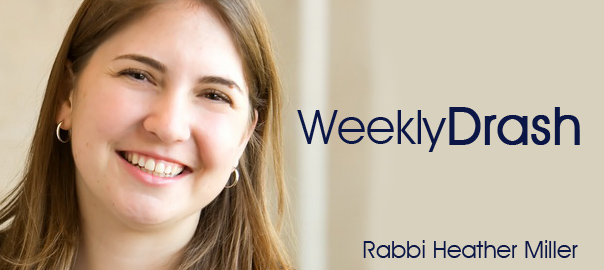The Pursuit of Justices — Parashat Shoftim; September 9, 2016

by Rabbi Heather Miller
Shabbat Shalom!
This October 3 is Rosh HaShanah! But it is also a very important secular date: it is the date that the US Supreme Court resumes its business. Mandated by statute the court resumes its business on the first monday of October!
There is only one problem with that– our Supreme Court only has 8 justices on it because congress won’t approve President Obama’s nomination of Judge Merrick Garland. So instead of 9 justices, there are 8– which is problematic because the court could effectively tie in its decision making which could hold up its interpretation of the laws that Congress makes– which is a fundamental role of the court.
There seems to be one possible way around this conundrum. It comes from an article by Gregory Diskant. He reminds his readers that the Constitution’s appointment clause states that the president, “shall nominate, and by and with the Advice and Consent of the Senate, shall appoint . . . Judges of the supreme Court, and all other Officers of the United States.”
According to him, this means that the president holds the power both to nominate and appoint the Justices, especially if, as in this situation, Congress has seemingly waived their right to appoint justices by simply not voting on the nomination.
Applied to the situation today, it seems like congress has waived its right deny the president’s nomination, therefore, he should be able to appoint the judge to the highest court in the land. I will leave this feud up to the constitutional law scholars to decide what should happen in secular society, but let’s take a deeper look at Jewish thoughts on the importance of a just legal system.
Jews are expected to observe 613 mitzvot. But what laws are secular societies supposed to uphold?
When this question was asked, the sages came up with an answer: the Noahide laws. These were the laws that God instructed Noah observe; afterall Noah is the father of humanity post flood. Therefore, the Noahide laws are a set of laws, a standard, that all of humanity is held to- and there are only 7 of them.
And, what is one of the most important of those seven Noahide laws? According to the Babylonian Talmud, Sanhedrin 56a, “DININ”– that’s Aramaic for “Dinim”– which is Hebrew for “Laws,”– that is to say that one of the important universal laws was to establish a fair legal system.
It is essential for every community to establish systems of justice. Working systems of justice. Fair and equitable systems of justice.
That makes the activity noted in this week’s Torah portion, Shofetim, which translates to “Judges,” all the more imporant. It reinforces the idea that it is crucial to appoint judges. It begins:
“Shofetim v’shotrim titen lecha b’chol she’a’recha asher Adonai Eloheicha Notein l’cha lish’va’teicha v’Shaf’tu et ha’am mish’pat tzedek.”
“You shall appoint judges and officials for your tribes, in all the settlements that Adonai your God is giving you, and they shall govern the people with due justice.”
The text continues, “You shall not judge unfairly: you shall show no partiality, you shall not take bribes, for bribes blind the eyes of the discerning and upset the plea of the just.”
Why is the idea of setting up courts and judges and systems of justice so important? What was the point that the US Constitution, the rabbinic Noahide laws and the Torah itself trying to make? That communities are only as good as their systems of justice.
If a community is set up where bribes can be taken and people are not judged honestly and fairly, why be good? Honestly? Why be good? Those who can get away with stealing can, and those who can’t, well they would be accused of it anyway, right?
Systems of justice are the bedrock of communities; they ensure peace through justice. That’s why within this Torah portion is also the famous verse, “Tzedek tzedek tirdof” “Justice, justice you shall pursue.” Why does it implore us to pursue justice? Well that’s because justice is often elusive. But, nevertheless, we should strive towards fairness, equality, and righteousness.
At this time of year, when we are judging ourselves and our actions toward one another and towards the planet, we must also do so with fair weights and measures. We must do so not by judging the best of ourselves against the worst we see in others, nor the worst we see in ourselves verses the best in others- you know like we do when we read others’ curated senses of themselves on Facebook?
But we must begin to act as shofetim, judges, to consider ourselves in alignment with our own deeply held values, and begin to consider how we right some of the wrongs we committed this past year in our relationships, and also applaud ourselves for the good that we have done.
As we come to this season of judgement, leading up to the day of judgement and the day of atonement where we consider our impact on the world at one moment each year, let us work to ensure equitable systems of justice in our secular world, and judge ourselves fairly personally, too– ultimately, may we shape a future with the hope and promise of justice and righteousness in the new year! Amen!




